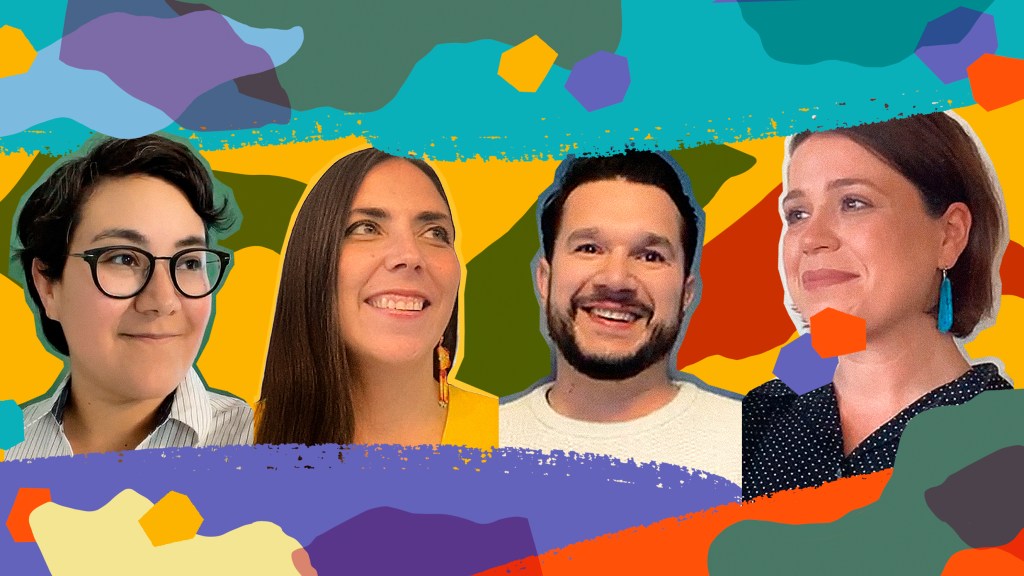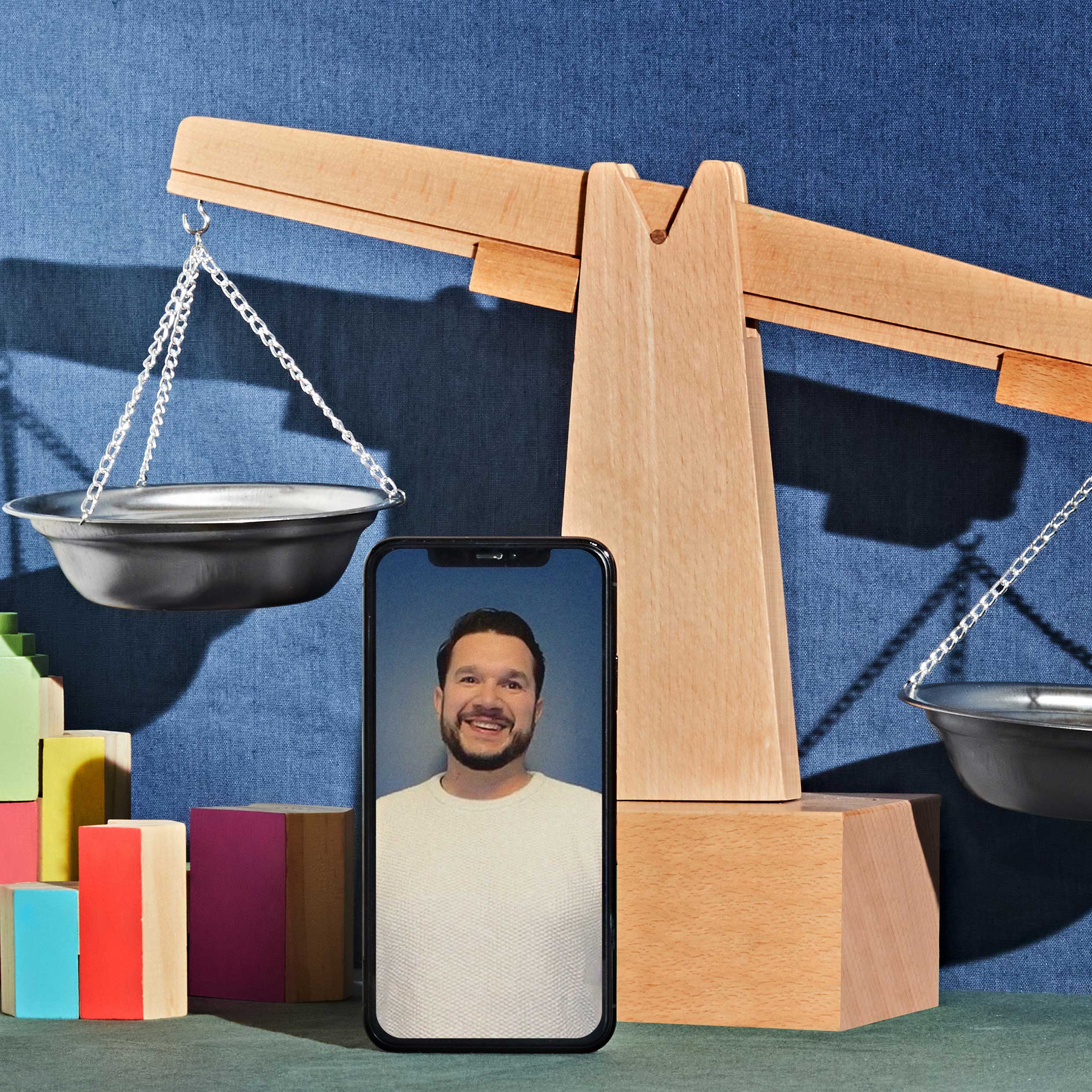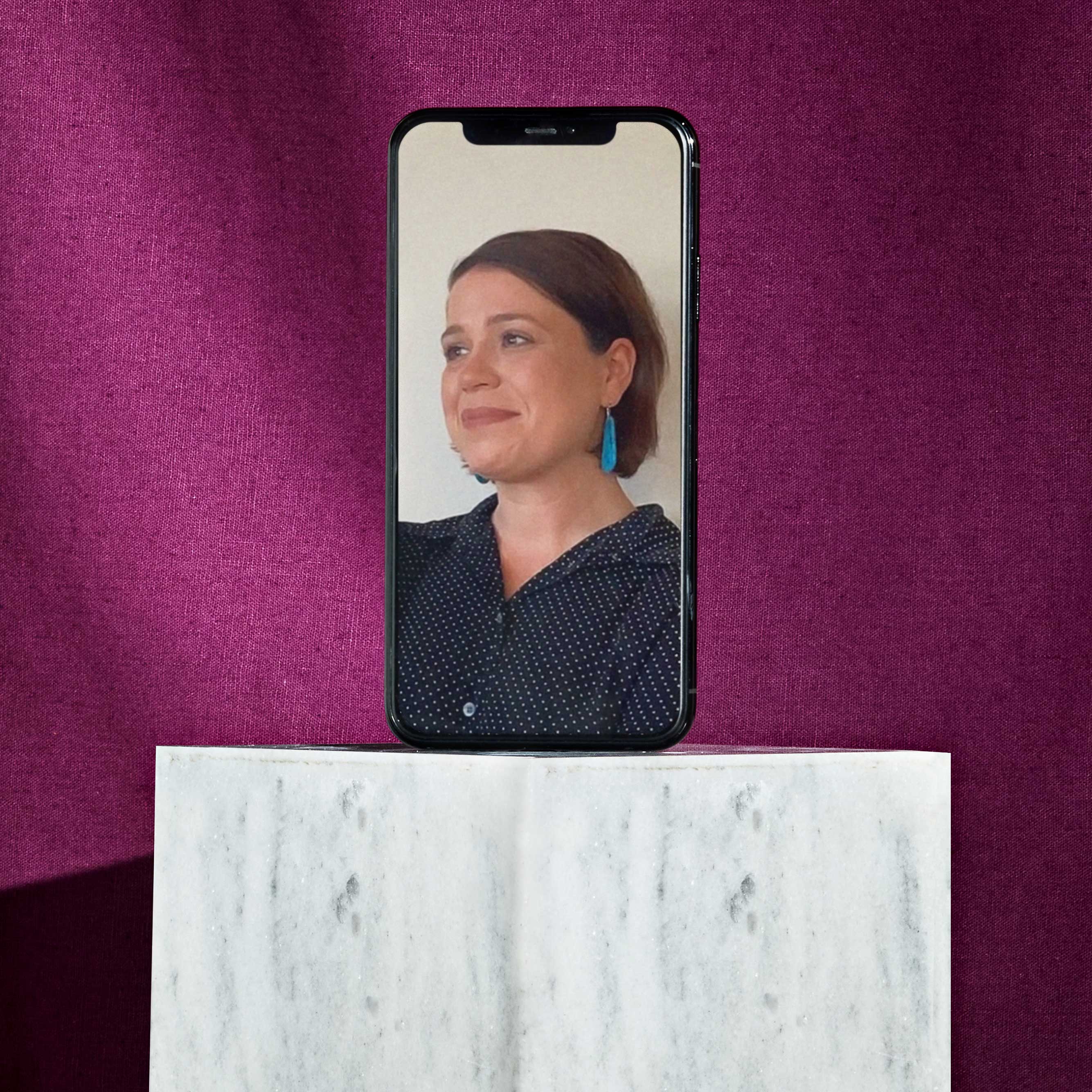
In a presidential election year like the one that just ended in the United States, a frenzy develops around swing states, those perennial battlegrounds with a history of flipping between political parties and influencing elections. Residents are polled incessantly. The rise of 24-hour cable news and a hunger for data on the possible outcomes drives a constant stream of information: Here is how many people in Michigan plan to vote; here’s how the polling margin has changed over time in Florida.
With this frenzy comes resources. Millions of dollars pour into swing states, backing TV campaign ads and get-out-the-vote efforts. Volunteers descend—knocking on doors, calling phones, sending texts—to confirm people will cast a vote for whichever party they represent. Grassroots organizers like Art Reyes of We the People Michigan, a community-driven organization, call this the “sandcastle effect.” These sandcastles—constructed of funds, teams of volunteers, and media attention—are transient, washed away at the end of the election cycle. In their wake are the problems on the ground left unsolved, the people of those states whose needs have gone unheard.
But a band of organizations have emerged to counteract this transactional way of engaging voters and build strong, enduring coalitions driven not by a short-term electoral cycle, but by long-term engagement that leverages the untapped power of the country’s shifting demographics. They center the needs of people and communities most impacted by inequality—not just during election years, but every year. They bring together diverse groups traditionally overlooked in partisan politics—Black, indigenous and people of color, the working class, young people, the LGBTQ+ community. They establish relationships built on trust and understanding and hold elected officials accountable, irrespective of party, to ensure they honor the promises they make on election day. By listening to people, uniting them, and championing them and their needs, these grassroots organizations are creating a new face of advocacy that’s truly representative of modern America and producing powerful waves of change in their states.
Swing states are often treated as a monolith, but leaders working within them will tell you they are anything but. In supporting five organizations—New Georgia Project, We the People Michigan, New Florida Majority Education Fund, Houston in Action, and TakeAction Minnesota Education Fund—we have seen up close how deep, nuanced engagement is transforming these states and building people power within historically marginalized communities (in some cases, for the first time). No state is the same, nor is the organization’s approach. We speak to five leaders from these organizations about the challenges facing their state and how they’re rising to meet—and overcome—them.
Michigan
Art Reyes, We the People Michigan
 Cody Guilfoyle
Cody GuilfoyleFor people outside Michigan, mention of the state likely brings to mind Donald Trump’s 11,000-vote margin of victory over Hillary Clinton in 2016. But the people of Michigan, particularly its communities of color, remember 2016 as the year the water crisis in Flint was declared an emergency. The high-profile public-works tragedy exposed as many as 12,000 children to lead after the city changed its water source and corroded the pipes that provided water to residents.
In 2020, Michigan swung back to blue—but, in many ways, it didn’t impact the day-to-day of many of its residents. “Michigan is a state that’s important perennially, every election year,” said Art Reyes, founder of We the People Michigan, which organizes people to advocate for equity, justice, and accountability. With that importance comes resources from both major parties to capture votes. But those resources, Reyes said, do little to benefit the lives of Michigan’s people. When the election spotlight fades, Michigan remains a divided state, where many lack access to basic needs.
The Flint water crisis spurred Reyes, a native of the city, to found We the People Michigan. “Flint wasn’t a natural disaster; it was a crisis of power,” Reyes said. The issues facing communities across the state now, Reyes said, are also crises of power: lack of good jobs, income inequality, and racial injustice.
We the People Michigan has set a new vision to build power among Michigan’s working-class people—rural and urban, people of color and their allies—by organizing around issues that affect their lives. When Reyes founded the organization in 2017, he spent the first five months driving across the state, meeting people from every kind of community. He learned that people in the Upper Peninsula, home to many Native American communities, pay some of the highest utility rates in the continental US. He learned about how investment funds that bought up vacant houses during the foreclosure crisis are now flipping them and forcing out black and brown people from communities. “I was getting a real picture of what folks were dealing with, but also a sense of what people want, and how we might build toward that,” he said.
At a convention in 2018 in Idlewild, Michigan, We the People convened residents and organizers from across the state to establish The People’s Agenda: a community-driven framework for organizing. Since then, it has helped bring people together—through workshops and regional gatherings—and, as a result, is changing the sense of what’s possible.
In 2020, We The People Michigan drove a campaign to shift the narratives around race and class, We Make Michigan, to help voters unite across their differences and advocate for a just future for all. It led a statewide canvassing program in 14 counties, including nine rural counties, to talk to voters. After the presidential election, when Michigan became central in an attempt to disrupt the results of a free and fair election, it was multi-racial working-class people—Black, white, brown, native and newcomer across rural, suburban and urban communities—that organized to protect democracy. “It’s people standing in solidarity with each other and acknowledging a linked fate,” Reyes said. “We are building power for the long haul, and that power must be built by our people day in and day out, not national organizations swooping in during an election year,” he said.
Reyes believes that investing in organizations like We The People will create a more powerful and permanent shift in the state than the “sandcastle” funding that flows in and out for election cycles. So when the national spotlight sweeps over Michigan every four years, the organization ensures its people have the power to set the agenda and advocate for themselves. “We are not just bodies for votes or instruments for national actors; we are a collective people fighting for the state we deserve,” he said. “That gives me massive hope for what the future looks like.”
Florida
Andrea Mercado, New Florida Majority Education Fund
 Cody Guilfoyle
Cody GuilfoyleWhen numbers came in with a decisive victory for Donald Trump in Florida on election night, analysis around the country immediately began to look for shifts in the electorate: Trump captured the Cuban American vote, as in 2016, but he also grew his support among non-Cuban Latinx voters in the state by nearly 10 percent.
To Andrea Mercado, executive director of New Florida Majority, these numbers drove home the significant and unique challenge of building a progressive movement in her state. “During election years, there is always a hyper focus on the conservative Hispanic vote in Miami Dade County without a fuller understanding of how much they dominate not only the political space, but also the media.” Mercado said. In the leadup to the election, disinformation fueled by the far right proliferated through Spanish-language channels—radio waves, Facebook feeds, and even WhatsApp chats. “It’s like surround sound,” she said. “The infrastructure that we’ve had to build to contest for progressive issues has been a massive undertaking,” Mercado said.
But New Florida Majority, or NewFM, is committed to putting in that work. The name of the organization itself is a political statement: one that asserts that the majority of the state is not represented in the narratives flowing out of the media and the state’s conservative government. “We are building a New Majority that centers the needs of Black and brown communities to create a state where we all belong and can thrive,” Mercado said.
NewFM, which was founded in 2009, works deeply in and with communities across the state and builds its team from within those areas to engage and organize them year-round, not just in major election years. In several cases, NewFM organizers like State Representative Angie Nixon, who formerly led NewFM’s North Florida outreach efforts, have gone on to successfully run for office and push forward an agenda that benefits their communities.
“We aim to be a trusted source of information, so people can learn which initiatives will serve them and which will take away their power,” Mercado said. Gaining that trust often means digging into the issues that affect peoples’ daily lives. Mercado recalls organizing in Hialeah, a Latino community in Miami-Dade county, after a trash dump created an intolerable smell and concerns about toxic runoff. “We were able to do rapid response and energize a campaign to stop the expansion of that trash heap and demand some water testing and answers,” Mercado said.
In a state where the conservative infrastructure is as powerful as a pressure washer hose, NewFM’s work is creating spaces where residents can learn about issues that matter to them, ask questions—and, most importantly, voice their concerns. NewFM has created waves of change in Florida: Since 2018, it has registered 100,000 people to vote and successfully helped push to raise the minimum wage to $15 per hour. But what perhaps best encapsulates its approach is the “wellness canvas” NewFM initiated last year, at the beginning of COVID-19. “We made close to a million calls just to listen to people, to ask how they were doing,” Mercado said. ”Were they worried about the coronavirus? Had they lost their job or hours? What did they need?” From those conversations, NewFM established a mutual aid fund to respond to the needs voiced.
While the progressive movement in Florida faced some hard losses in 2020, Mercado is optimistic about the future. In 2021, New Florida Majority is merging with Organize Florida to create Florida Rising, a new and powerful model fighting for equity and change. “We believe that the new majority is already here. We’re building the pipeline of leaders who will champion the issues that serve all of us. And I believe that we’re right around the corner from enacting some real transformative change.”
Texas
Frances Valdez, Houston in Action
 Cody Guilfoyle
Cody GuilfoyleAs the 2020 election approached, Frances Valdez, director of Houston in Action—a coalition of more than 50 member organizations working to increase civic participation—was thinking a lot about her great-grandmother. Valdez’s family still has the receipts from the poll tax she had to pay to cast her vote in the small border town by the Rio Grande where they lived. “The history of oppression and racism in this state is deep,” Valdez said.
To Valdez, there is a connection between the poll tax her ancestors had to pay to vote and other remnants of the Jim Crow era, and the efforts by Republican policymakers in 2020 to disenfranchise communities of color. Texas has long been a state where those in power have used the political and legal systems to suppress the representation of people of color. “During national elections, people from outside the state look at the numbers here and they’ll say ‘there’s an opportunity with all these people of color in Texas,’ so they’ll come down and try to organize and mobilize and do the same thing they do in other places to get votes,” Valdez said.
This approach, Valdez said, often fails because it misses the complexity of Texas and the diversity it contains. “Because of our history of oppression, individualism, and many other factors, Texas doesn’t have the same history or culture of organizing like what you might find in places on the east coast or in Detroit,” Valdez said. “Efforts of BIPOC communities coming together and saying: ‘We don’t like this, we’re going to build power and change things’, have historically been under-resourced and oftentimes quelled. This has made it hard to build a strong culture of organizing in this region”
Houston in Action’s main goal is to strengthen civic participation across Harris County—the third largest county in the US. What’s key, Valdez said, is understanding the nuances in the county’s diversity and meeting people where they are.
The 2020 census was the first opportunity for Houston in Action to test its approach. It cultivated a network that included clinics, libraries, community centers, places of worship and organizations with histories of strong organizing across Harris County’s diverse, undercounted communities. “We were able to build infrastructure to directly support and add capacity to community organizing and weave a network broader and more integrated than we’ve ever really seen in our region,” Valdez said. Roughly 200 entities engaged in the regional effort, many of which were trained and funded to educate their constituents about the census and encourage participation. “We saw the power of sharing data and systems across such a broad network and saw the results as our network evolved to take on 2020 voter registration and participation, and now to activate people around redistricting and potentially COVID-19 vaccine response.”
While national campaigns are hungry for numbers and votes, Houston in Action invests in organizations that work directly with historically marginalized and oppressed communities. “The reality is that the communities most at risk for a census undercount, the communities where there is less voter registration, these are people that have been intentionally left out due to systemic racism,” Valdez said. “And they are the ones who suffer most in a crisis, whether it’s a hurricane or COVID-19. People are trying to go to them for registration and votes, but right now, they’re dying.” By working with and directing funding to organizations already embedded in communities, Houston in Action is building a model by which civic participation can grow out of community bonds, rather than being shaped by outside forces.
This is long-term, essential work. “I’m sure some people may be afraid to invest in Texas again because the election didn’t go like they thought it would,” she said. “But what I tell people is that we can’t stop. Many Houston in Action members and partners have been working to build organizing power in Texas for years. We have to continue to invest in new organizations, innovations and experiments and we have to be open to 10- or 20-year plans to strengthen these bonds to build leadership and community-based power.
“We have to start from a place of working with all of our unique communities, helping them see and build what they want for themselves. That’s the foundation that participation can grow out of.”
Minnesota
Elianne Farhat, TakeAction Minnesota Education Fund
 Cody Guilfoyle
Cody GuilfoyleIn May of 2020, George Floyd was murdered by police in the streets of Minneapolis, and the city became the epicenter of a global uprising around racial injustice. “It was painful,” said Elianne Farhat, executive director of TakeAction Minnesota. “But people have put that pain and righteous rage into action, and ripped open all this space for new possibilities.”
While Minnesota came into the spotlight again as a key battleground state in the 2020 presidential election, organizers on the ground kept the focus, driving for progressive change out of the wounds of systemic racism, police violence and COVID-19. TakeAction MN has been an integral part of channeling the people of Minnesota’s rage and pain into action and progress.
Since it was founded in 2006, the organization has taken an “all the tools in the toolbox” approach to movement building and social change, Farhat said. TakeAction trains progressive candidates to run for office at the state and local level, and manages community-centered campaigns focused on issues ranging from expanding access to health care to blocking the construction of a tar sands pipeline across the northern part of the state. It runs public education programs and recently launched a fiscal sponsorship program—essentially an incubator and financial support structure for smaller or early-stage grassroots initiatives. Over the summer, at the height of the protests, TakeAction supported Black-led groups like Black Visions Collective and their project Reclaim the Block, a key leader in demanding justice and investments in community safety infrastructure in Minneapolis.
“From the beginning, our organization has focused on building people power in the intersection of civic engagement, issue campaigns and leadership development in order to create transformational change,” Farhat said. “This broad scope has been somewhat unique in the field, although that has really begun to change in recent years.” TakeAction has always operated from the perspective that there’s a direct line between the issues that galvanize people and the candidates—whether at the local, state, or federal level—that pledge to represent them.
To create this throughline, TakeAction creates a governing infrastructure—sometimes called “co-governing”—around elected officials they support. “If we’re serious about setting a progressive agenda, it’s not enough for folks who represent our values to get elected,” Farhat said. “We need them to be in partnership with us, co-creating the agenda and collaborating.” Elected officials who are TakeAction MN members meet regularly with the organization’s coalitions to ensure the voices and needs of the people are represented in political decisions.
In the wake of the Floyd protests, Farhat said, TakeAction MN conducted thousands of conversations with members across the state, and hosted listening sessions to hear how residents would reimagine public safety and reinvest in communities. Because the organization deeply engages people with diverse roles in public life—from single constituent to elected official—it can connect these voices to action. As 2020 drew to a close, Minneapolis announced it will reallocate $8 million of its policing budget to alternative programs, including a mental health crisis response team.
Even in one of the most consequential presidential elections in recent history, Farhat said that TakeAction has always been about building people power and welcoming people into the democratic process through avenues that build them up, not just extract their vote. She describes TakeAction as a “political home” for its members: a place—a virtual one this year—where people can come together, actively participate, build bonds, and hold each other accountable for their shared success.
To Farhat, participation in a presidential election is a manifestation of how empowered people are feeling in the political process, and how connected they are feeling with each other. In 2020, voter turnout neared 80 percent—the highest rate in over 50 years. “We saw this year that folks really wanted to make a difference in their communities and were able to stay connected and show up through the crises,” she said. By building a space to foster those connections and power, TakeAction MN is making democracy an active, collaborative practice across Minnesota.
The Ford Foundation is a nonpartisan 501(c)(3) private foundation. Its Civic Engagement and Government strategy works to ensure all people have the opportunity to shape and influence the systems and policies that affect their lives. The 501(c)(3) grantees referenced in this article may have 501(c)(4) affiliates that support candidates, but Ford Foundation funds cannot be used for any political campaign activity and are not earmarked for any lobbying activity.
